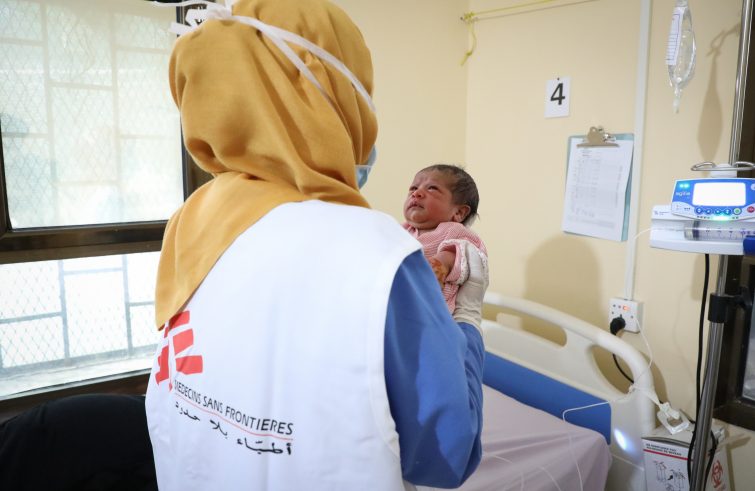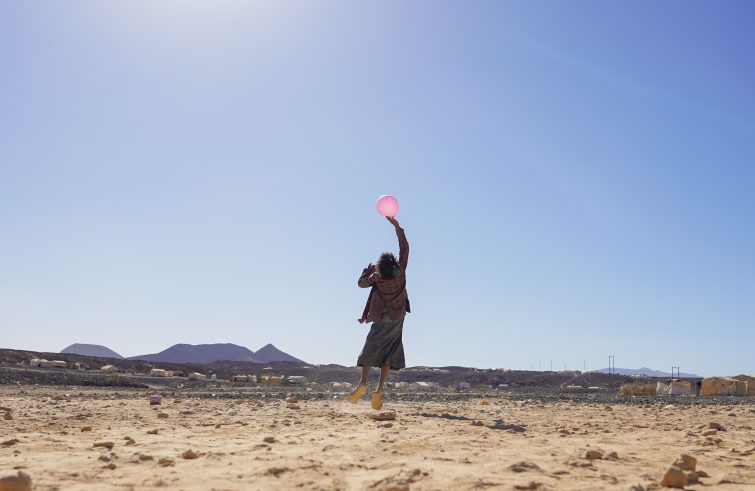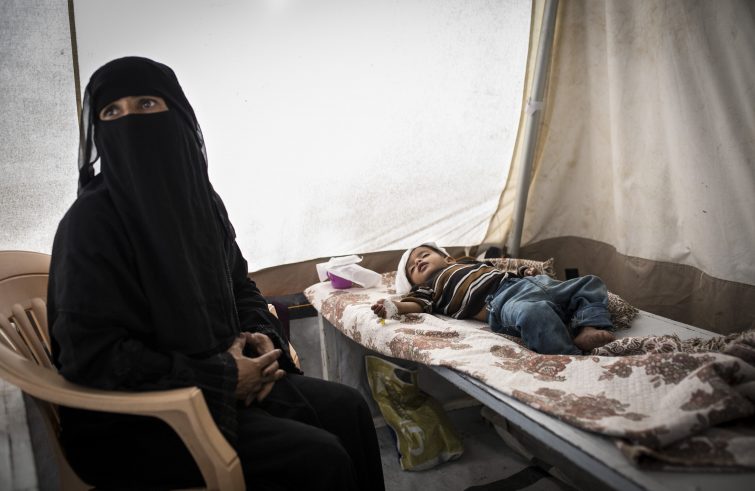
Yemen’s six-month truce established between the Houthi rebels and the internationally recognized government (IRG) in April 2022 ( which was never officially renegotiated) is holding: the good news is that armed strife has been stopped. But in reality “the situation was somewhat frozen, deadlocked, and it is deteriorating. In fact, 80% of the population depends on humanitarian assistance – which continues to be underfunded by the international community: 50% of all healthcare facilities have been destroyed.” Children, women and men “are not dying under the bombs, they are dying of extreme hunger, childbirth, measles or diarrhoeal diseases. We are extremely worried.” Federica Ferraresi, Humanitarian affairs advisor at Doctors Without Borders /Médecins Sans Frontières (MSF), is familiar with Yemen’s plight. She served as mission leader in the capital San’aa until last year. The country is now in its ninth year of warfare and the population is still suffering terribly.
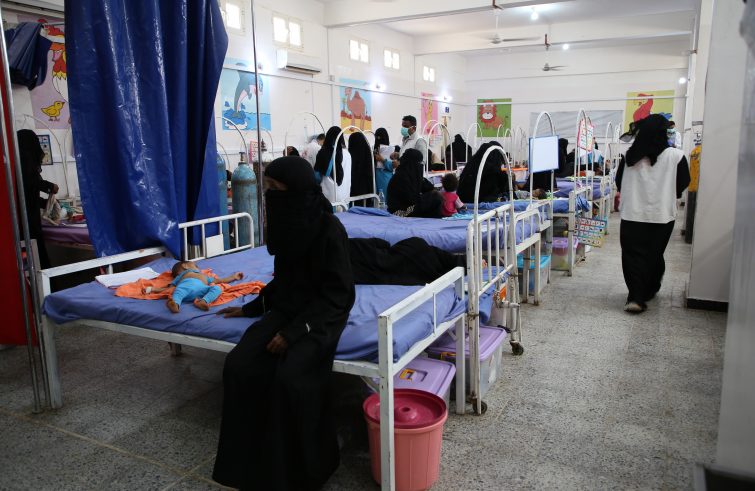 Abs hospital overwhelmed, “beds increased tenfold.” It has just recently been reported that the MSF has had to “increase the number of beds tenfold”- from 33 to 288 – at the Abs hospital in a region with one million inhabitants, due to overwhelming and unexpected increase in patient numbers. Patients share beds, while the emergency room, the maternity ward, the neonatal unit, and inpatient therapeutic feeding centre frequently operate beyond capacity.
Abs hospital overwhelmed, “beds increased tenfold.” It has just recently been reported that the MSF has had to “increase the number of beds tenfold”- from 33 to 288 – at the Abs hospital in a region with one million inhabitants, due to overwhelming and unexpected increase in patient numbers. Patients share beds, while the emergency room, the maternity ward, the neonatal unit, and inpatient therapeutic feeding centre frequently operate beyond capacity.
“One in two children are malnourished or undernourished.
– Ferraresi told SIR – They come here because there are no quality health services or because they have no money. Yemen is facing a spike in measles cases and widespread diahhoreal diseases.
These otherwise curable diseases become acute or deadly because it is too late to treat them.
Even a routine pregnancy can become life-threatening. There is also a very serious mental health problem due to the trauma caused by the conflict, which left deep scars.”
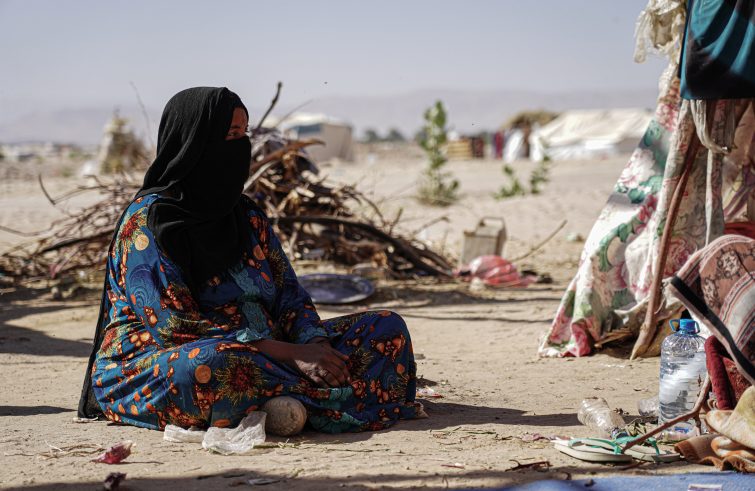 The war in Yemen is one of the world’s most long-forgotten humanitarian crises. Nevertheless, during the last donor conference in February 2023, countries pledged only $1.2 billion for humanitarian response, while $4.3 billion are needed to meet the population’s humanitarian needs. “There are increasing needs, but funding is shrinking because there are other crises,” notes Ferraresi. The medical needs overwhelming the Abs hospital – for example – are a result of reduced funding. Healthcare workers in Hajja and Hodeida governorates had to stop working, leading to a discontinuation of services and medical supply shortages in several health facilities.
The war in Yemen is one of the world’s most long-forgotten humanitarian crises. Nevertheless, during the last donor conference in February 2023, countries pledged only $1.2 billion for humanitarian response, while $4.3 billion are needed to meet the population’s humanitarian needs. “There are increasing needs, but funding is shrinking because there are other crises,” notes Ferraresi. The medical needs overwhelming the Abs hospital – for example – are a result of reduced funding. Healthcare workers in Hajja and Hodeida governorates had to stop working, leading to a discontinuation of services and medical supply shortages in several health facilities.
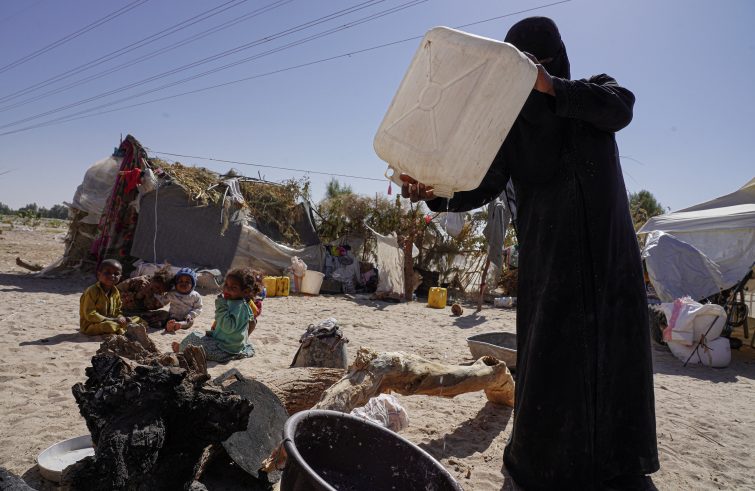 Yemenis face harsh conditions in refugee camps. On a population of 30 million, 4.5 million are internally displaced, 1 million in the Marib governorate alone. “We have five mobile clinics here that provide medical care wherever needed,” she said. Drinking water and sanitation facilities shortages in Yemen’s Abs district camps facilitate the spread of diseases. In 2023, the UNHCR (United Nations High Commissioner for Refugees) estimates that 21.6 million people in Yemen will require humanitarian assistance, 11 million of whom are children.
Yemenis face harsh conditions in refugee camps. On a population of 30 million, 4.5 million are internally displaced, 1 million in the Marib governorate alone. “We have five mobile clinics here that provide medical care wherever needed,” she said. Drinking water and sanitation facilities shortages in Yemen’s Abs district camps facilitate the spread of diseases. In 2023, the UNHCR (United Nations High Commissioner for Refugees) estimates that 21.6 million people in Yemen will require humanitarian assistance, 11 million of whom are children.
“If no new scenarios open up, resulting in a final ceasefire agreement, the humanitarian situation will only get worse”,
Ferraresi said. Small groups are still fighting in Yemen, where Iranian-backed Houthi rebels are in control of the capital San’aa and the central government is backed by a Saudi Arabia-led international coalition. It is common knowledge that large amounts of weapons arrived in Yemen from Western countries, including Italian-manufactured weapons (despite legislative bans). Doctors Without Borders, which has consistently been characterised by its neutrality, independence and impartiality, is pursuing relations with both sides to conduct its activities. “Although it’s hard, it allows us to help everyone.”
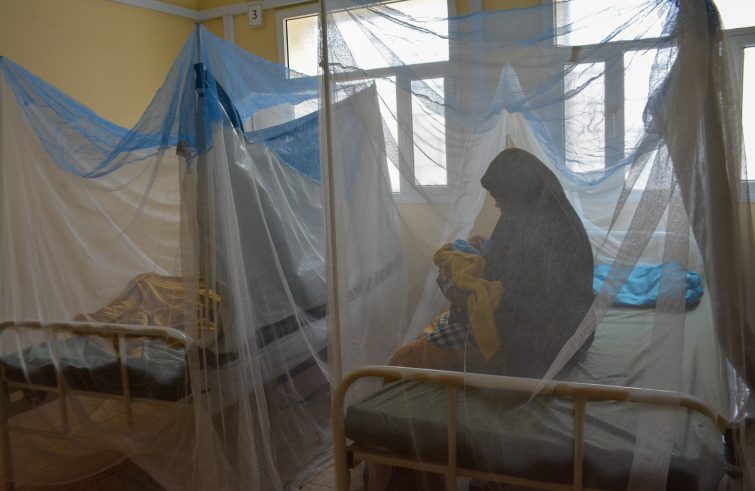 Appeals to the international community. Her hope, of course, “is that the conflict will end soon – the people are those who are suffering the worst.” She called on the international community to “promote a peaceful resolution and increase its humanitarian assistance” ” Although, in a socially and economically shattered country, where reconstruction is not even mentioned yet,
Appeals to the international community. Her hope, of course, “is that the conflict will end soon – the people are those who are suffering the worst.” She called on the international community to “promote a peaceful resolution and increase its humanitarian assistance” ” Although, in a socially and economically shattered country, where reconstruction is not even mentioned yet,
“The aftermath is bound to be fraught with more challenges”
Doctors Without Borders has been has been working in Yemen since 1986 and continuously since 2007. In 2022, teams of MSF doctors worked in 12 hospitals and provided support to another 16 health facilities across 13 governorates.

